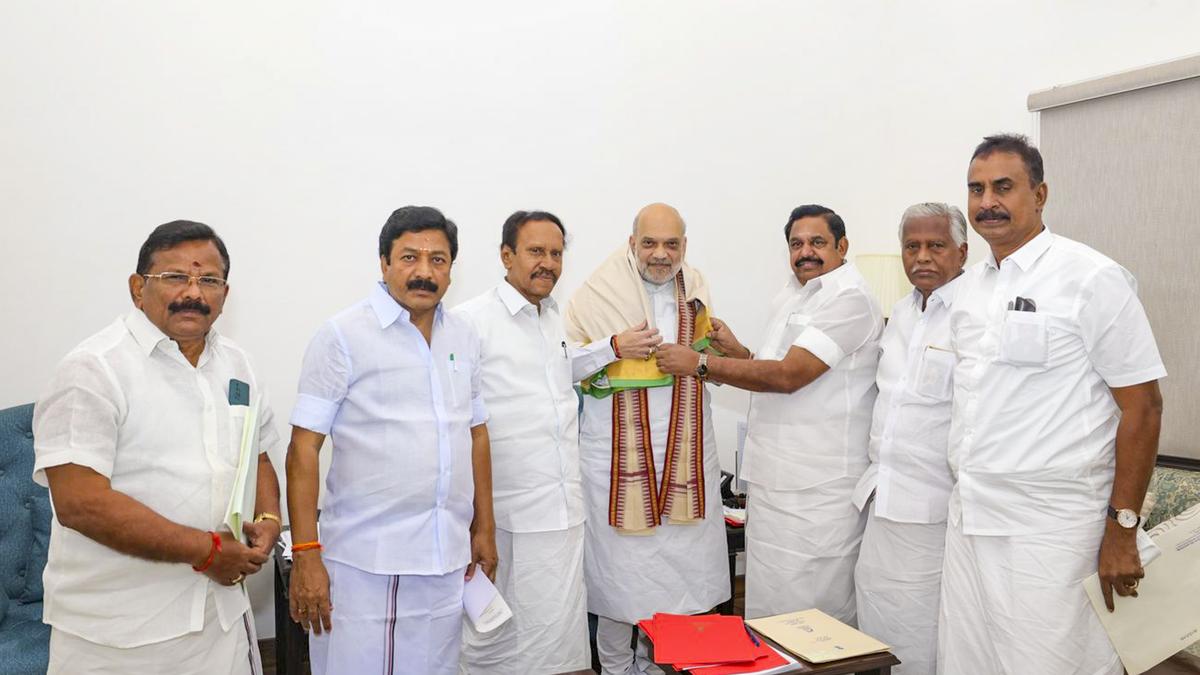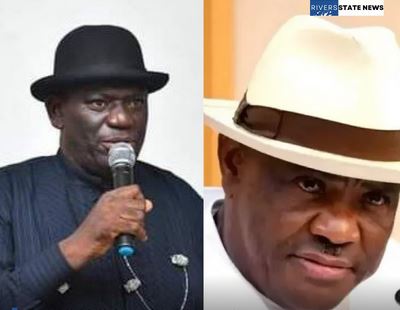
W ith an electoral alliance in the works between the AIADMK and the BJP, the political landscape in Tamil Nadu could shift more rapidly than expected before the 2026 Assembly elections. Last week’s unscheduled meeting in New Delhi between a delegation of AIADMK seniors, led by party general secretary Edappadi K. Palaniswami, and Home Minister Amit Shah has disrupted many political calculations.
Mr. Palaniswami did not acknowledge his political compulsions, claiming that he met the Home Minister only to present a memorandum on issues concerning Tamil Nadu. However, Mr.

Shah, regarded as the BJP’s principal election strategist, has openly confirmed that alliance talks are ongoing between the parties. By declaring that the NDA will form the next government in Tamil Nadu, he has subtly hinted at the formation of a coalition government. The meeting took place amid growing pressure on Mr.
Palaniswami from within the AIADMK to reconcile with expelled leaders O. Panneerselvam and T.T.
V. Dhinakaran. More significantly, it followed a ‘soft rebellion’ by party veteran K.
A. Sengottaiyan, once a trusted campaign manager of former party supremo Jayalalithaa. Mr.
Sengottaiyan’s sudden visit to New Delhi over the weekend underscores the behind-the-scenes power plays at work. Clearly, the BJP is seeking to extract its pound of flesh from the AIADMK during the latter’s politically vulnerable moment. The BJP also needs an alliance with the AIADMK and its splinter factions to make headway in a State where it faces significant electoral, ideological, and policy challenges from the DMK-led INDIA bloc.
The development — just 18 months after the AIADMK dramatically exited the NDA — has put loyalists of M.G. Ramachandran and Jayalalithaa in a difficult position.
Party cadres are confused and disillusioned, as the AIADMK has struggled to find direction after Jayalalithaa’s death in 2016. Splits, reunions, leadership experiments, and electoral defeats have left the party fragmented. The cadres feel it is under the control of external handlers and is being pulled in various directions.
This turn of events has also closed the door to political players who were seeking to align with a so-called “secular” formation led by the principal Opposition party. Even if the AIADMK were to chart an independent course later — a highly unlikely scenario — it would struggle to attract minority voters due to the trust deficit that it has now created. At the same time, this development has significant implications for other players.
As and when the NDA is strengthened, the election will likely evolve as a two-way battle between the NDA and the DMK-led INDIA bloc. This will limit opportunities for other parties and affect the debut prospects of actor Vijay’s Tamilaga Vettri Kazhagam (TVK), which has declared the BJP its “ideological opponent” and the DMK its “political opponent”. Mr.
Vijay, who former election brand builder Prashant Kishor views as a “new hope for Tamil Nadu”, has declared that the election will be fought like never before and will be a contest between the TVK and the DMK. While a recent survey claimed that he is the second-most preferred chief ministerial candidate, the organisational dynamics have changed. Mr.
Vijay’s impact and strike rate, assuming his fans vote for him and he is backed by change-seekers, would have been stronger in a five-way contest. For the INDIA bloc too, this will not be an easy election. In 2021, despite all its shortcomings and the anti-incumbency factor, the NDA of the AIADMK and the BJP won 75 out of 234 seats.
That was when the DMK’s election campaign was managed by Mr. Kishor’s I-PAC. With the possible inclusion of Mr.
Dhinakaran’s Amma Makkal Munnetra Kazhagam and Mr. Panneerselvam’s faction, the NDA could now pose a significant challenge. Additionally, vote splits from parties such as the TVK and Seeman’s Naam Tamilar Katchi could further complicate matters.
The DMK has one advantage — the emergence of its M.K. Stalin as a strong political catalyst in binding its allies and bringing together multiple States to oppose the proposed delimitation exercise.
His firm stance against the imposition of a third language has also bolstered his image. Still, elections are shaped by numerous variables that affect voters. What is clear is that Tamil Nadu is set to witness a battle where the stakes are higher than they have ever been.
Published - March 31, 2025 12:15 am IST Copy link Email Facebook Twitter Telegram LinkedIn WhatsApp Reddit Tamil Nadu.















